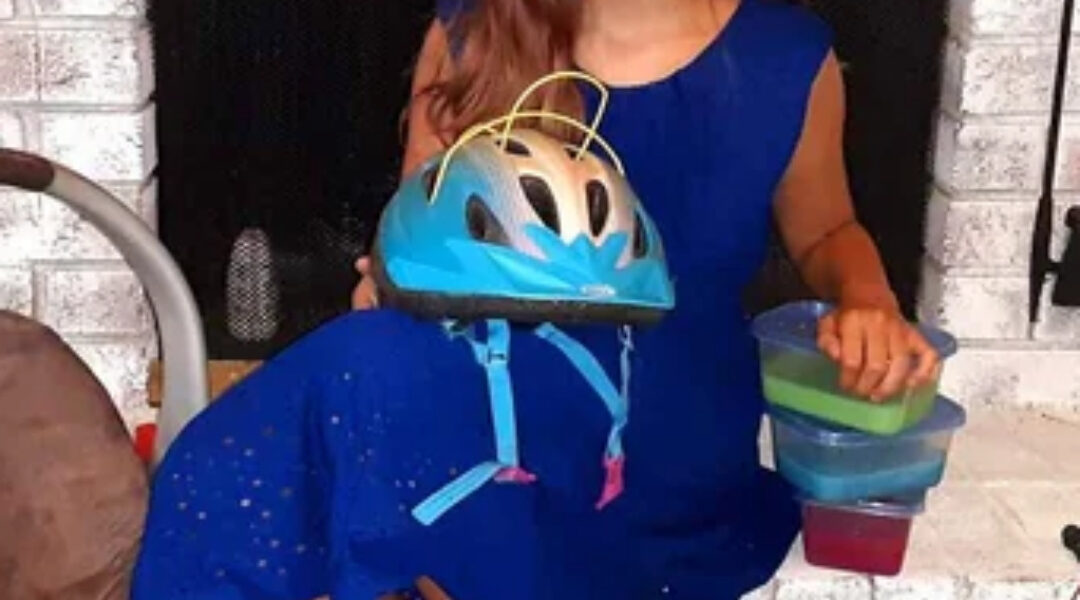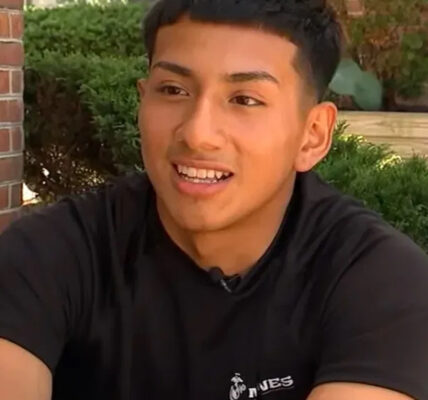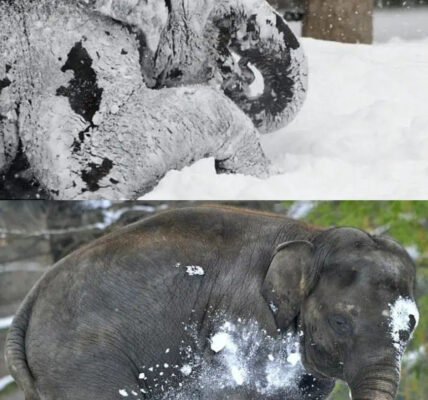It began, as many great acts of courage do, with heartbreak.

One summer afternoon, 12-year-old Lydia Denton of North Carolina was sitting beside her mother when a news report came on — another story of a child who had died in a parked car. The details were devastating: a baby forgotten for hours in a vehicle that turned into an oven. By the time anyone realized, it was too late.
Lydia’s heart broke. She couldn’t stop thinking about it. “Why did no one help? Why didn’t the car tell them?” she asked her mother over and over. Her mother tried to explain that it was an accident — that parents forget, that technology sometimes fails — but Lydia shook her head. “Then we need to fix it,” she said quietly.
And from that moment, she decided she would.
A Problem Too Painful to Ignore
Every year, dozens of children die in overheated vehicles — most of them not because of neglect, but because of distraction. A quick errand, a forgotten stop, a change in routine — and tragedy strikes. Cars heat up faster than most people realize. Within just 10 minutes, the temperature inside can rise by 20 degrees.
Lydia read everything she could about it. The more she learned, the more determined she became. She refused to believe such deaths were “inevitable.” If adults hadn’t figured out a solution, maybe it was time a kid did.
“I just kept thinking, what if that was my little brother or sister?” she said later.
So, she started sketching.
The Birth of “Beat The Heat”
Lydia’s idea began with a simple question: How can a car know when a child is in danger — even when no one else does?
She envisioned a pressure-sensitive pad that could detect the presence of a child on a car seat. She paired it with a small temperature sensor. Then, she designed a chain of automatic alerts:
-
When the temperature hit 102°F, the system would trigger a loud alarm inside the car.
-
At the same time, it would send a text alert to the parent’s phone.
-
If no one responded within minutes, it would automatically contact emergency services, providing the vehicle’s GPS location.
It was simple, affordable, and — most importantly — lifesaving.
Her “Beat The Heat Car Seat” could be installed in any car, making it accessible to families everywhere. Lydia spent months perfecting her prototype. Her tools were modest — a few sensors, recycled wiring, and a lot of determination. When she didn’t understand something, she searched online. When she failed, she tried again.
Her mother often found her at the kitchen table late at night, scribbling in her notebook or testing temperature readings with a lamp and thermometer. “She wasn’t just inventing something,” her mother recalled. “She was fighting for someone — a child she never met but couldn’t forget.”
Recognition and Reward
When Lydia entered her invention in the CITGO Fueling Education Challenge, she didn’t expect to win. She simply wanted people to see that kids could make a difference.
But when the judges saw her demonstration, they were stunned. Not only had she identified a real-world problem — she had engineered a working, low-cost solution.
Lydia won the $20,000 grand prize, but it wasn’t the money that made her smile. It was the thought that maybe, one day, a child’s life would be saved because of what she built in her living room.
“I couldn’t stand the idea that kids were dying because no one had thought of something like this,” she said. “So I thought of it.”
Her story spread across the nation. News outlets featured her invention. STEM educators, automotive safety experts, and child advocacy organizations reached out, praising her design as one of the most practical child safety innovations of the decade.
Parents began writing to her, sharing stories of their own near-misses, their gratitude, their admiration. Some said her invention helped them heal from losses that words could never mend.
Beyond the Invention
Lydia didn’t stop after the competition. She began refining the design further — exploring solar charging options, voice alerts, and better connectivity for emergency networks.
When asked what inspired her, she always gave the same answer: “I didn’t want anyone else to lose a child like that.”
She spoke at local schools, encouraging other kids to use science and compassion together. “You don’t have to wait until you’re grown up to solve problems,” she told them. “If you see something wrong in the world, try to fix it — even if you’re small.”
Her message resonated deeply. Teachers began using her story to inspire lessons about empathy-driven technology — showing how innovation isn’t just about profit or prestige, but about purpose.
A Legacy of Hope
Lydia’s “Beat The Heat Car Seat” is now being studied by several organizations interested in bringing it to market. But to Lydia, her greatest achievement isn’t the recognition — it’s knowing she turned sorrow into action.
“Technology should care,” she once said. “It should protect, not just connect.”
Her invention proved that even the youngest minds can reshape the world when guided by love and conscience.
Today, at just twelve, Lydia stands as a quiet reminder of what humanity can be — inventive, compassionate, and brave enough to care when others look away.
She didn’t build her device to be famous. She built it because she couldn’t bear to let another child die in silence.
And maybe that’s the greatest kind of genius there is — not the kind that changes technology, but the kind that changes hearts.




